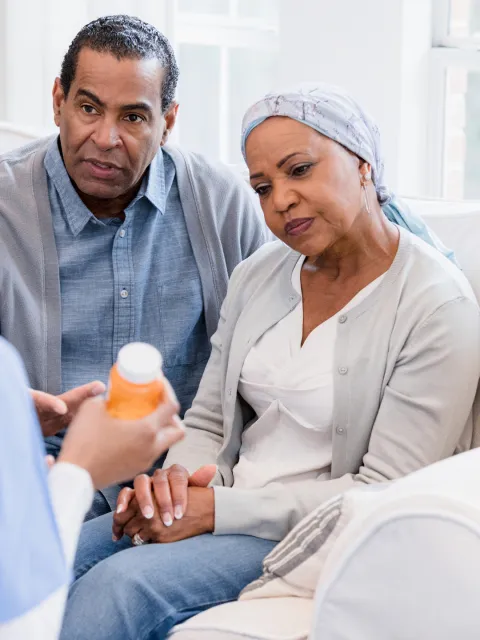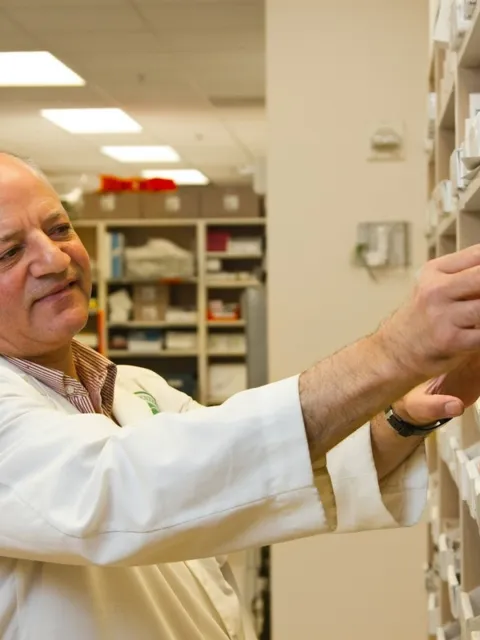In Conversation: The importance of antibiotics for people with cancer
Dressed in blue to mark World Antimicrobial Awareness Week, Dr Cary Adams and Dr Manica Balasegaram analyse the growing resistance of microbes to the drugs designed to kill them, what this means for cancer patients often exposed to them, and what actions can be taken in response.

Overuse and misuse of antimicrobial medicines are major factors that have contributed to the development of drug-resistant microbes, known as antimicrobial resistance or AMR. Other important contributing factors include inadequate infection prevention and control, and a lack of access to affordable, quality-assured and appropriate medicines and diagnostics.
An estimated 750,000 people die annually from drug-resistant infections and by 2050 this number could reach ten million and cost more than USD 100 trillion without collective action. People being treated for cancer are particularly vulnerable, as AMR also undermines key advances being made in cancer care by adversely affecting cancer treatment outcomes and threatening the survival of people living with cancer.
In this Conversation with UICC CEO Dr Cary Adams, Dr Manica Balasegaram, Executive Director of the Global Antibiotic Research and Development Partnership (GARDP), offers insight into GARDP's work on promoting innovative solutions to the challenge of antibiotic resistance, which include developing new treatments for serious bacterial infections, focusing primarily on those drug-resistant bacteria listed on the World Health Organization’s (WHO) priority pathogens list and ensuring responsible and sustainable access to treatments (with multisectoral partners).
Together, Manica and Cary explore actions that are taking place around the world to address this urgent issue and what role governments, civil society, the private sector, caregivers and individuals can all play in fighting antimicrobial resistance.
Last update
Wednesday 24 November 2021
